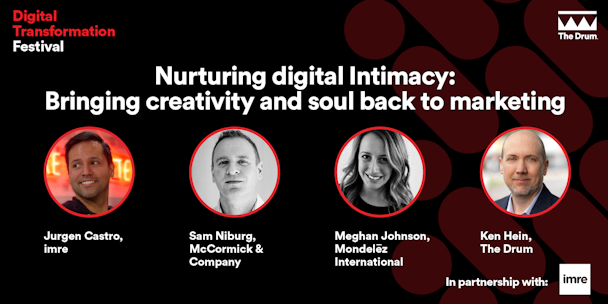CPG marketers: think less about the data and more about the soul of the consumer
Too often marketers get the ability to target consumers confused with actual marketing. Yes, even with the impending death of the third-party cookie, we will have the ability to reach consumers with massive accuracy. But to truly win, it is about achieving personalization at scale. What’s more, it’s about doing so with empathy and bringing a little bit of soul back to marketing.

Nurturing digital intimacy: Bringing creativity and soul back to marketing
The more digitally refined marketing becomes, the more it has to deal with maintaining the humanity that attracts people to brands in the first place. This push and pull is especially pronounced during our current stage of existence living and working at home.
When it comes to marketing consumer packaged goods, this personal touch is more important than ever according to a panel of experts that included Meghan Johnson, global head of agency ecosystem for Mondelez International; Sam Niburg, senior manager of global digital experience for McCormick & Co; with Jurgen Castro, vice president of digital marketing for leading creative, digital and PR agency, imre; and US editor of The Drum Kenneth Hein.
Bringing “soul and feeling to digital advertising,” especially in the time of the pandemic is easier said than done, says Hein. For the marketers, it often boiled down to how they were selling as much as what they are selling.
Niburg, for instance, discussed how brands like Frank’s Hot Sauce and Old Bay Seasoning have dug deeper into direct-to-consumer marketing practices whereas previously retail stores were the key focus. “It's not just about that last bottom of the funnel. You are helping them make the right purchase, helping them find new dishes, explore new things and make healthier decisions as part of their journey.”
Johnson from Mondelez, which owns beloved brands like Oreos, stresses that it’s easy for marketers to get lost in the weeds of data and technology. “What we found is that we had over indexed on a love of data and tech and the ability to segment people down into the finest amount. We forgot about the creative expression of an idea and really that hook that would bring consumers in.”
Mondelez has addressed this issue by committing to “empathy at scale.” Johnson says the company has refocused its efforts on “having human conversations, human connections with people and that we're maintaining that creative idea as we're talking to people on a more of a one-to-one level.”
Carefully translating this message across multiple channels is essential says imre's Castro. “For us, it's always been about starting with the personal experience, what are we trying to communicate? Our approach has always been a little bit unique in that we weren't trying to take big creative campaigns and translate them into social or into digital channels, we always started with, what is the optimal experience somebody can have within the channel? And then how do we translate what the brand is trying to communicate to that level.”
Maybe those walled gardens aren’t so bad
Google, Facebook and the rest catch a lot of flak for making brands operate within the confines of their “walled gardens.” Still, the panelists were in agreement that there are certain advantages (e.g. safety) in partnering with the behemoths of the digital landscape.
As the walls grow higher and higher, McCormick’s Niburg cautioned against an overreliance on these partners. “We can't put all our eggs in that basket,” he says. It’s about “how do we build these direct relationships where we generate and we leverage our own first-party data.”
Niburg and the panelists note that there has to be a true value exchange in order to create a relationship with customers hesitant to give up their personal first-party data.
Johnson says in order to achieve this, “brands need to stay true to their principles, true to the area that they can really play in because that's really what's going to be the connection. That's going to be the hook. That's going to be the value that you can really give to consumers.” This is now core to Mondelez digital marketing strategies.
Castro says it boils down to always thinking of your customer first. “We talk a lot about data. But what I feel sometimes gets lost in that conversation is the point of the data. It is it to really understand your audiences, your customers or partners, intimately so you can deliver the things that your audience actually values.”
The full discussion, Nurturing digital intimacy: Bringing creativity and soul back to marketing, is available on demand via The Drum's Digital Transformation Festival website. Watch it here.
Content created with:

imre
imre is a fiercely independent agency working with many of the world’s leading and high growth brands.
Driven by innovation, imre’s integrated suite of...
